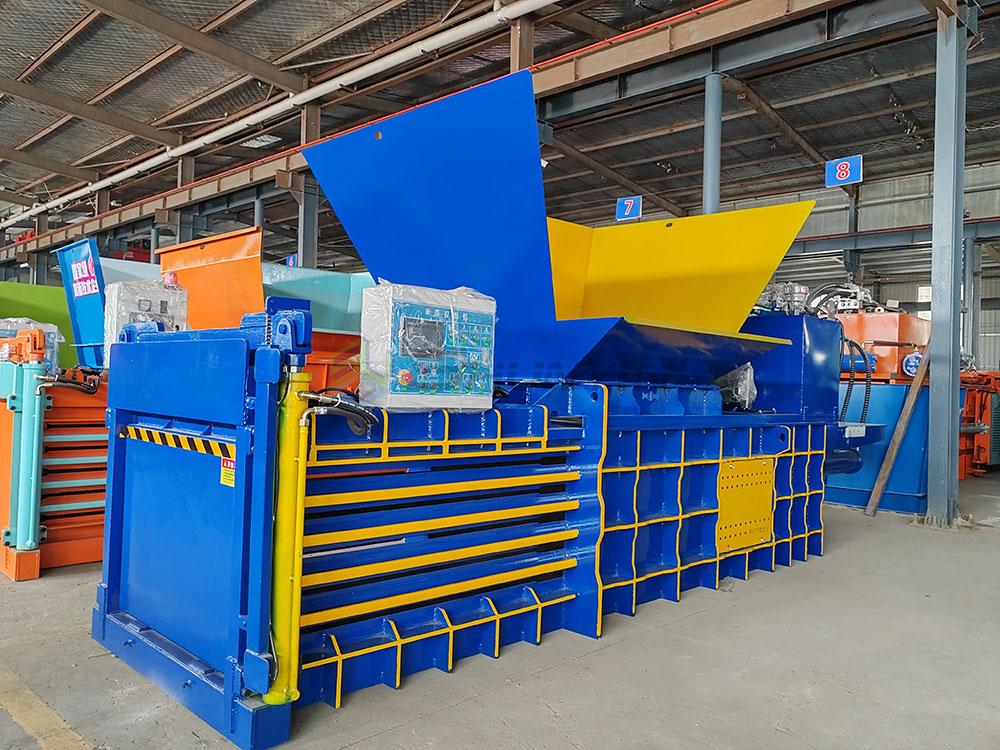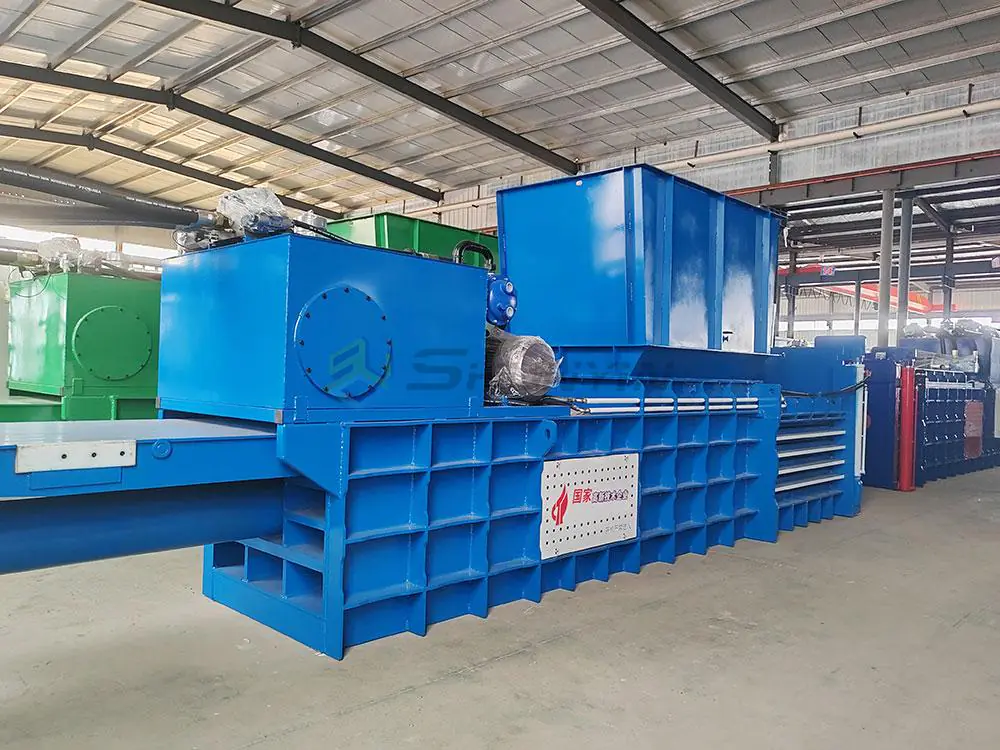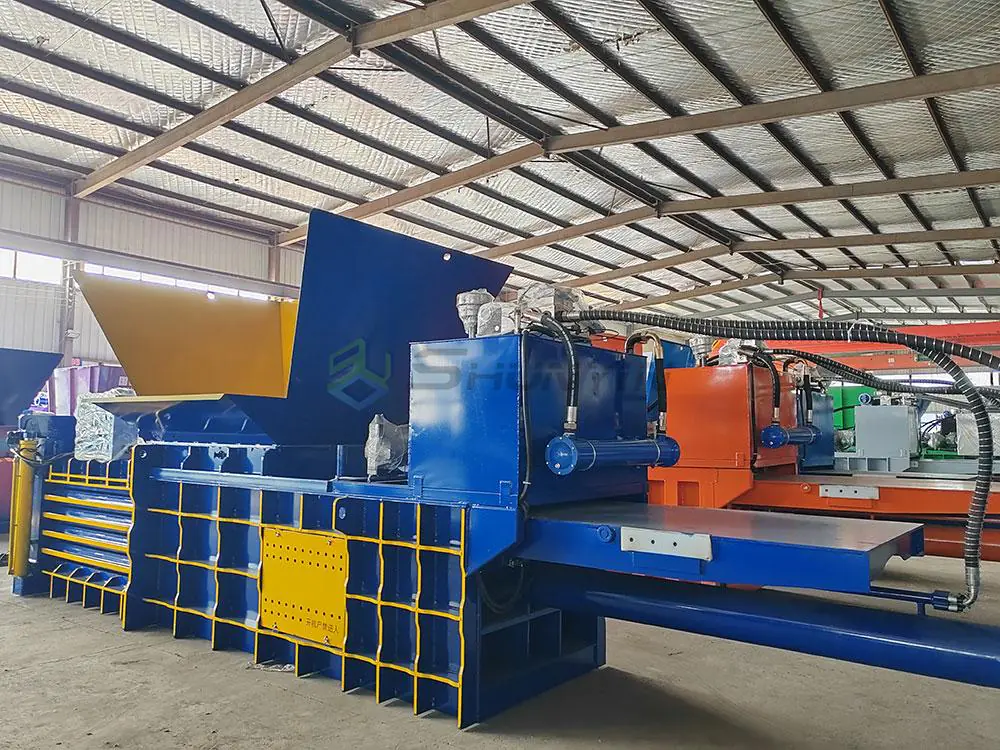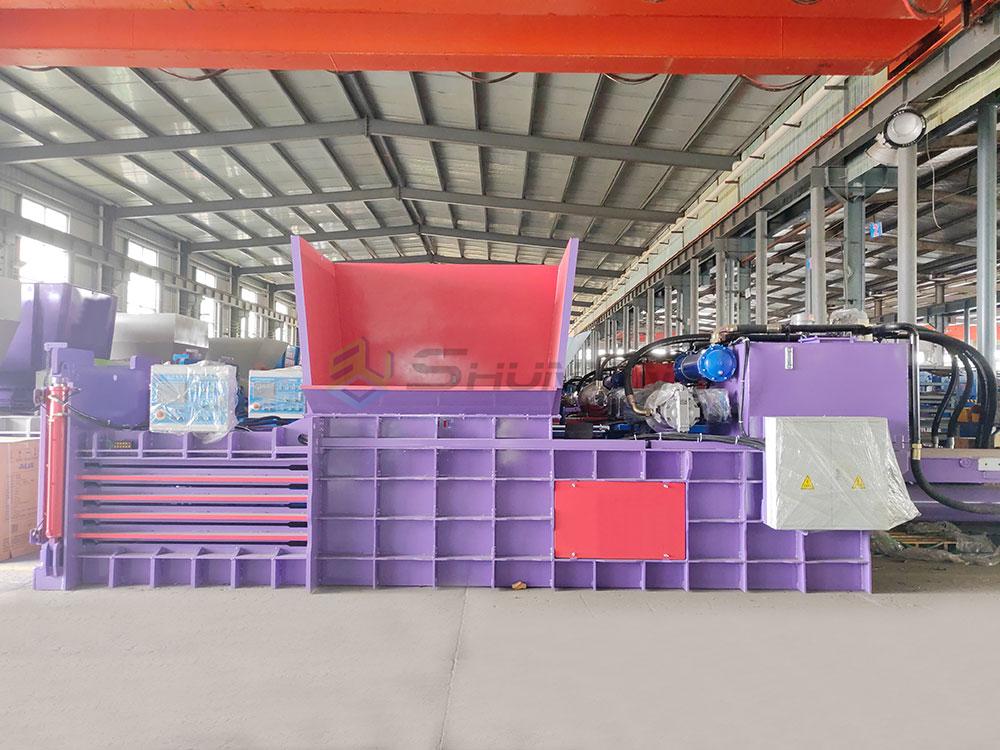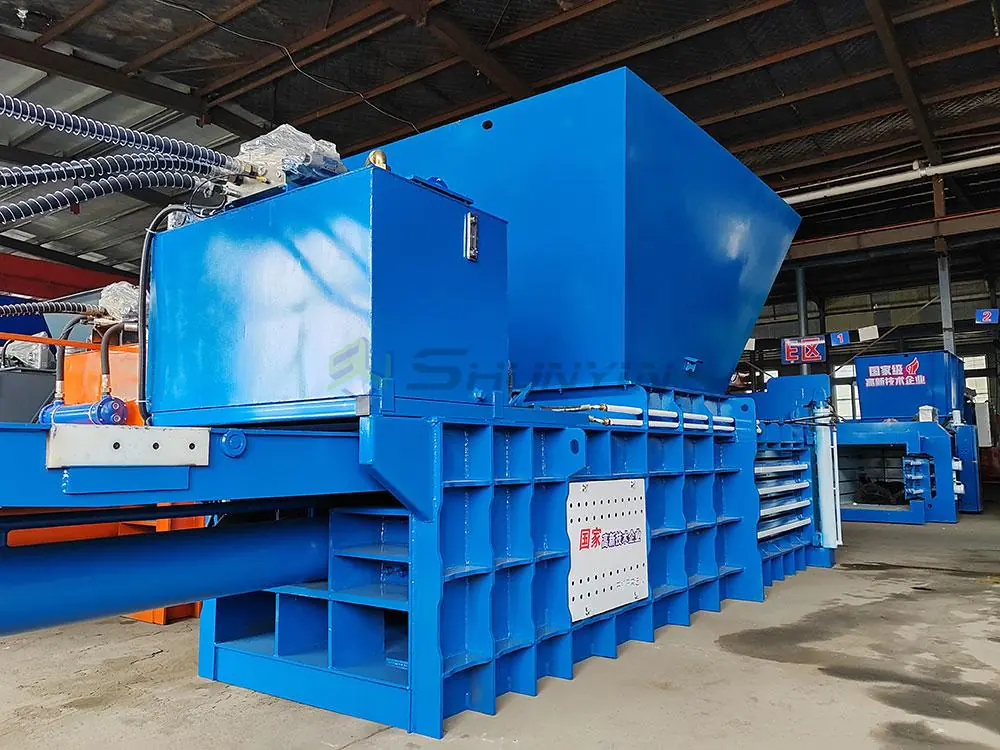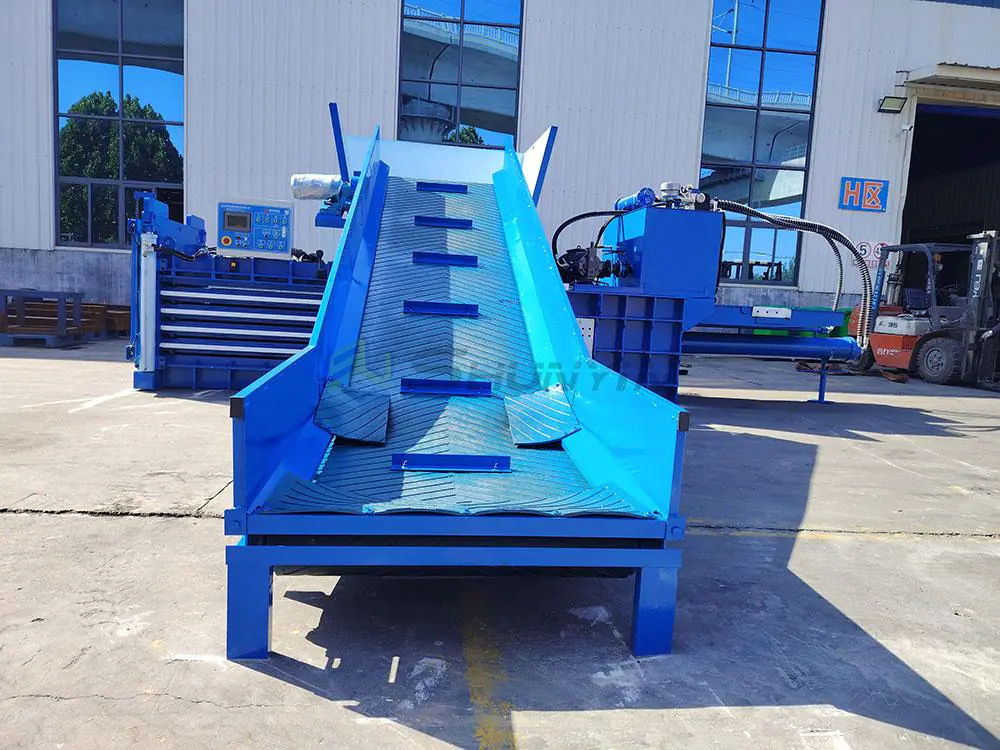
China has become a hub for the manufacturing of hydraulic balers, offering competitive pricing, customization options, and a wide range of models to meet various industry needs. But with so many manufacturers to choose from, how do you know which ones offer the best products? This article explores the leading horizontal hydraulic baler manufacturers in China, along with key factors to consider when selecting a supplier.
Some of the top-rated manufacturers of horizontal hydraulic balers in China, known for their quality and affordability, include:
- Shunyin Machinery (Jining Shunyin): Offers durable, customizable balers for various industries, with excellent after-sales support.
- Sinobaler: Known for cost-effective, high-performance balers for cardboard, plastic, and metal, with reliable customer service.
- Zhengzhou Huaisheng Machinery: Specializes in affordable, heavy-duty balers, ideal for large volumes.
- Henan Sinolion Machinery: Focuses on customizable balers with high efficiency and solid build quality.
- Hysan Machinery: Offers competitive pricing for small to medium-sized businesses with efficient waste management solutions.
Key Factors to Consider:
- Customization: Look for manufacturers that meet your specific needs.
- Pricing: Compare prices, including shipping and fees.
- After-Sales Support: Ensure strong warranty and customer service.
The Chinese market for hydraulic balers is vast and diverse, with numerous manufacturers offering products at various price points and levels of customization. When choosing the best supplier, it’s important to consider product quality, customer service, lead times, and the ability to meet specific operational requirements. Let’s explore the top manufacturers and what makes them stand out.
What is a hydraulic baler?
A hydraulic baler is a machine that uses hydraulic force to compress materials into compact bales. These machines are essential in recycling and waste management industries, where materials such as paper, plastic, and metals need to be processed efficiently for storage and transportation.
A hydraulic baler uses hydraulic pressure to compact various materials into tightly bound bales. These machines are designed to improve efficiency and reduce labor costs, as they can compress materials much faster and more effectively than manual methods.

The principle behind hydraulic balers is simple: a hydraulic pump applies pressure to a pressing chamber, compacting the materials inside. This process is not only efficient but also more consistent than traditional mechanical methods. Let’s take a closer look at the components of a hydraulic baler.
Key components of a hydraulic baler
| Component | Function |
|---|---|
| Hydraulic Pump | Provides pressure to compress materials |
| Pressing Chamber | The space where materials are compacted |
| Ejection System | Ejects the finished bales |
| Control Panel | Allows the operator to adjust settings |
Advantages of hydraulic balers
Hydraulic balers offer several advantages over other types of balers, including:
- Higher compaction efficiency: Hydraulic force allows for tighter bales, saving space and reducing transport costs.
- Versatility: Hydraulic balers can handle a wide range of materials, from cardboard to metals and plastics.
- Automation options: Many hydraulic balers offer automatic feeding and ejection, reducing the need for manual labor.
What is the price of an automatic baler?
Automatic balers are designed to simplify the baling process by automating tasks such as feeding, compressing, and ejecting materials. These machines are particularly useful for high-volume operations and industries that require continuous processing.
The price of an automatic horizontal hydraulic baler in China typically ranges from $10,000 to $25,000, depending on the level of automation, the size of the machine, and any customization required. Fully automated balers with advanced features like automatic feeding and ejection systems are on the higher end of the price spectrum.

Automatic balers provide several benefits, such as reduced labor costs, faster processing speeds, and the ability to handle large volumes of materials. However, these benefits come at a cost, as the technology and components required for automation increase the overall price. Let’s explore how the features of automatic balers influence pricing.
Price breakdown for automatic balers
| Feature | Price Impact |
|---|---|
| Fully Automated Feeding System | Adds $4,000-$7,000 |
| Bale Size | Larger bales = Higher cost |
| Control Panel | Advanced systems add $3,000-$5,000 |
| Ejection System | Automated ejecting adds $2,000-$4,000 |
Why automatic balers are more expensive
Automatic balers are equipped with advanced systems that require more sophisticated components and technology. The automation reduces manual labor and increases operational efficiency, but it also drives up the cost. These balers are an ideal solution for businesses looking to process large quantities of materials with minimal human intervention.
What is a horizontal baler?
A horizontal baler is a type of hydraulic baler where the materials are fed and compressed horizontally. These balers are larger and more powerful than vertical balers and are ideal for handling higher volumes of materials. Horizontal balers are often used in industries such as recycling, waste management, and manufacturing.
A horizontal baler compresses materials in a horizontal chamber, which allows for more efficient use of space and higher throughput. These machines can be customized to handle a variety of materials, from paper to metals and plastics, making them a popular choice for large-scale operations.

Horizontal balers are known for their versatility and ability to handle large quantities of material. They are typically larger and more complex than vertical balers, which means they can process a wider range of materials and offer higher levels of automation. Below is a comparison of horizontal and vertical balers to help you understand their key differences.
Horizontal vs. Vertical Balers
| Feature | Horizontal Balers | Vertical Balers |
|---|---|---|
| Size | Larger, more complex | Smaller, compact |
| Capacity | Higher capacity | Lower capacity |
| Automation | Higher automation options | Fewer automation options |
| Material Processing | Handles a wider range of materials | Best for smaller volumes |
| Price | More expensive | Less expensive |
Benefits of horizontal balers
Horizontal balers offer several advantages:
- High throughput: These machines are ideal for processing large volumes of materials quickly.
- Customization: Horizontal balers can be tailored to specific needs, such as different bale sizes or material types.
- Versatility: They can process a wide range of materials, including paper, plastics, and metals.
What is a vertical baler?
A vertical baler is a type of hydraulic baler that operates vertically, with materials being loaded from the top and compressed into bales at the bottom. These machines are typically smaller and more compact than horizontal balers and are suitable for operations with limited space.
Vertical balers are smaller machines that offer an efficient way to compact materials like cardboard, paper, and plastics. They are typically less expensive than horizontal balers and are best suited for smaller-scale operations.

Vertical balers are ideal for businesses with limited space and lower production volumes. They are typically used in smaller recycling centers or retail environments, where the volume of materials is not as high as in larger industrial operations. Let’s explore the pros and cons of vertical balers.
Benefits and drawbacks of vertical balers
| Feature | Benefits | Drawbacks |
|---|---|---|
| Size | Compact and space-saving | Lower capacity compared to horizontal balers |
| Price | More affordable | Limited material types and volumes |
| Automation | Simple operation, easy to use | Fewer automation features |
Why choose a vertical baler?
Vertical balers are a cost-effective solution for smaller businesses or operations with limited space. They can handle materials like cardboard and paper efficiently but are not as versatile or high-capacity as horizontal balers. For small-scale recycling operations, vertical balers provide an affordable and reliable option.
Conclusion
China is home to many reputable horizontal hydraulic baler manufacturers, including companies like Shunyin, Hubei Jiuhe, and Nantong United, offering high-quality products at competitive prices. When choosing a supplier, consider factors such as product quality, pricing, customization options, and after-sales support. Horizontal balers are ideal for businesses that need to process large volumes of materials, while vertical balers are more suitable for smaller operations. By understanding the features and pricing of these machines, you can make an informed decision about the best supplier for your needs.


